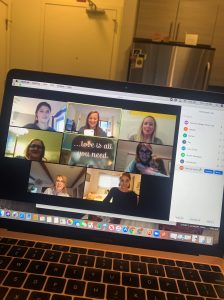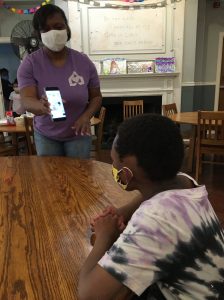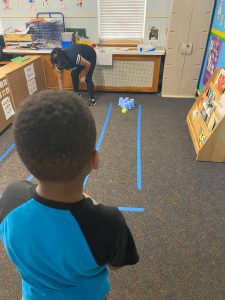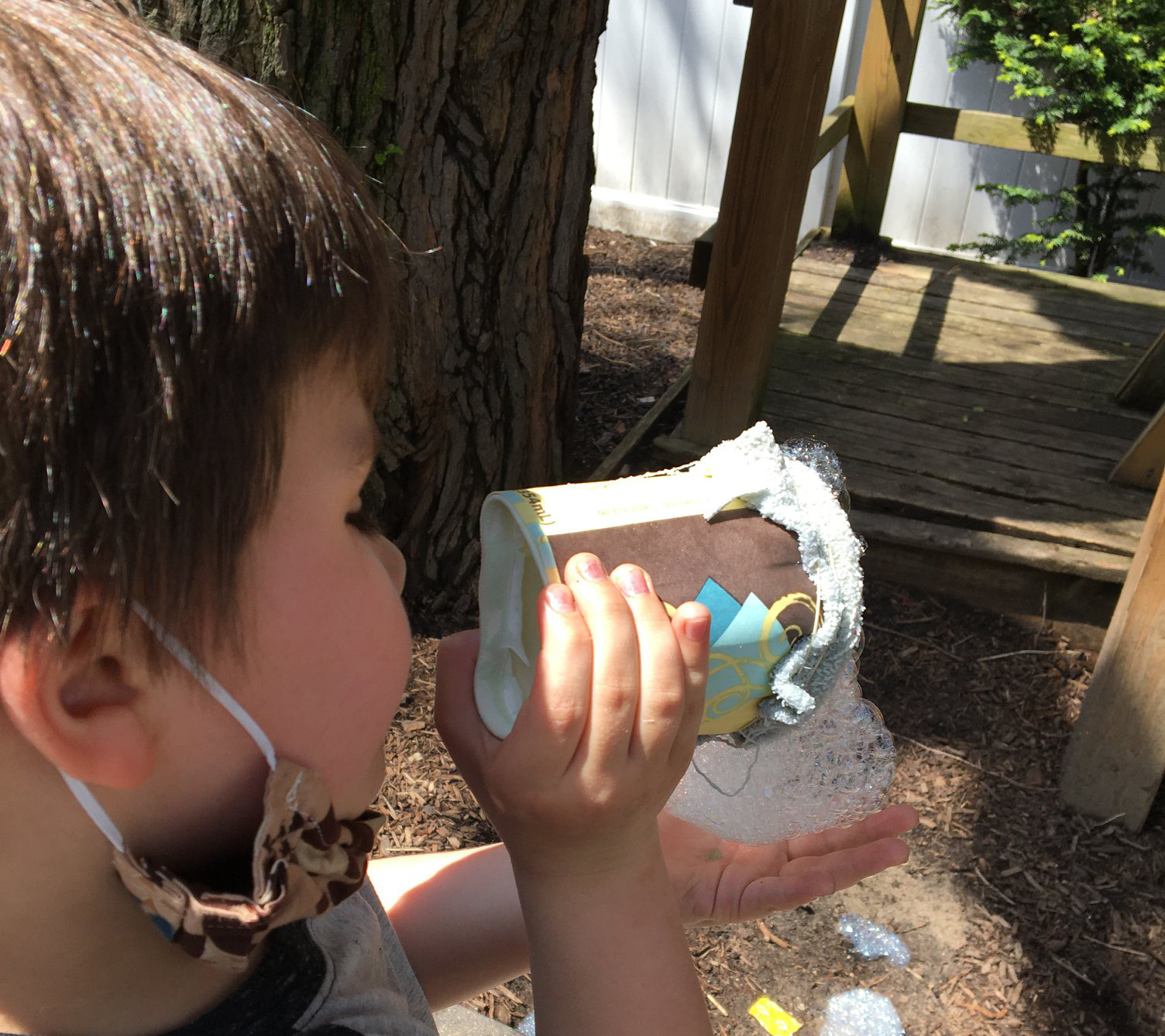In Spring 2020, “keeping children safe” took on a whole new meaning as the COVID-19 pandemic mandated shelter-in-place orders in Illinois. The 26 children living at Hephzibah Home were going stir-crazy; it took the whole team to keep the kids connected, educated, active, enriched and entertained for three months.
 “[Virtual learning] was challenging at first,” admits Hephzibah Education Coordinator, Eliana Callan. “We had 26 different learning plans on different devices and platforms and more Zoom meetings than I could count.”
“[Virtual learning] was challenging at first,” admits Hephzibah Education Coordinator, Eliana Callan. “We had 26 different learning plans on different devices and platforms and more Zoom meetings than I could count.”
With more than two dozen children to educate and a lot of special needs to address, Callan and her coworkers spun into action.
“It was an ‘all-hands-on-deck’ situation,” she recalls. “Our goal was to help the children stay connected to school and to the teachers who had become such an important part of their lives.”
After a short adjustment period, the children adapted surprisingly well to their virtual classrooms and continued to make academic progress—a fact that Callan attributes to the dedication of a committed group of Oak Park educators.
“We have so many heartwarming stories about these amazing educators who went out of their way to help our kids,” Callan notes. “The teachers dropped off schoolwork, made short videos to keep the children motivated and even organized a drive-by parade to let them know how much they were missed.”
Meanwhile, our therapists were hard at work helping the children cope with the emotional impact of COVID-19.
“Many of the children have a history of relational trauma and broken family bonds,” says Hephzibah Clinical Supervisor Ashley Ice. “So our first priority was to preserve the nurturing and supportive relationships that these children had developed with Hephzibah therapists, social workers, staff and volunteers.”
 But how does one safely stay connected during a global pandemic?
But how does one safely stay connected during a global pandemic?
“Connection is connection, whether it’s virtual or in real life,” says Ice. “We masked up for in-person therapy sessions and encouraged the
children to talk about their feelings of loss and isolation. We also encouraged them to use the coping tools that they had learned upon their arrival at Hephzibah— tools that had helped them become more resilient, such as meditation, breathing exercises, yoga and positive
self-talk.”
Meanwhile, our volunteer Big Siblings and Heartmates stayed in touch via phone calls, letters and Zoom sessions; our Homework Helpers read stories on video; and our Paws for Strength pet therapists shared entertaining videos from a pup’s point of view. With school shut down and our volunteers on hiatus, we also had a lot of empty hours to fill. So Hephzibah Education Behavior Interventionist Molly Pyne, our self-described “coronavirus cruise director,” scheduled a brainstorming session with fellow staff members, including our after-school Day Care team. Her goal? To come up with creative ideas for activities that would beef up the fun factor.
 “We wanted to keep the kids busy and active after their schoolwork was done,” Pyne explains. “So we came up with an extensive menu of afternoon activities, from indoor sports such as bowling and hockey to freeze-dance competitions and karaoke.”
“We wanted to keep the kids busy and active after their schoolwork was done,” Pyne explains. “So we came up with an extensive menu of afternoon activities, from indoor sports such as bowling and hockey to freeze-dance competitions and karaoke.”
With each extension of the stay-at-home order, our staff members brainstormed again to keep the fun fresh and the surprises coming—from build-your-own robots to a crazy hair day with spray-on hair colors.
“Even though we were not leaving the house and life was far from normal,” says Pyne, “the kids were having fun every single day and so were we.”

